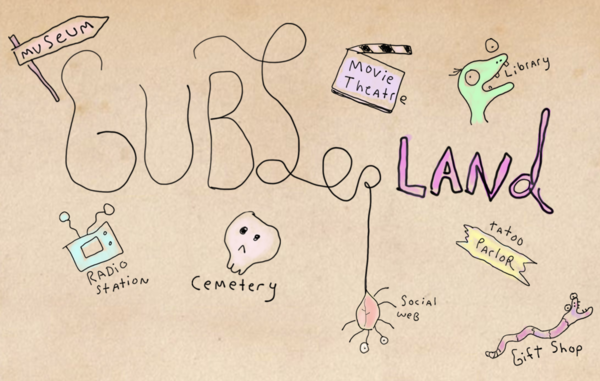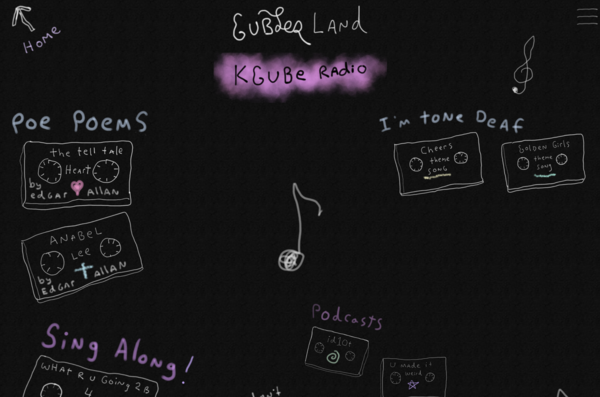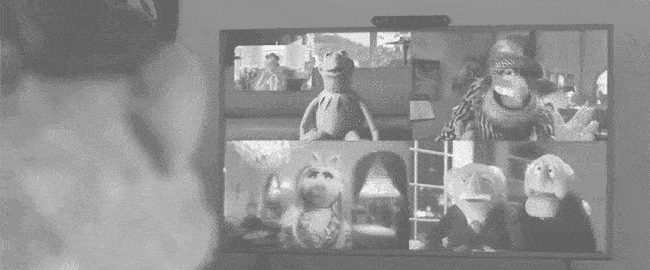
Look at this time machine Matthew Gray Gubler operates.
I fully admit that I don’t closely follow the career of Matthew Gray Gubler, in part because I don’t watch a lot of police procedurals, but I will happily admit that I really like what Gubler did with his website.
The actor, who had a notable appearance in a Wes Anderson film that he somehow parlayed into a long television career centered around a single role (Criminal Minds ran for 15 years!), has a homepage of the type that you don’t see on the internet anymore. It looks like something you might have seen on the web in 1997, and even in its earliest forms, it was an interesting and compelling personal website.
Admittedly, for a while, Gubler used Flash, but earlier this year, as Flash was finally murdered by the the dark forces pulling the strings behind the internet’s giant red curtain, he eventually moved to HTML5 and a responsive website.

Gubler’s audio selections are fun.
But the thing that’s really great about it is how much it reminds me of what websites used to look like on the internet, when a personal website was about presenting ourselves in digital form, not just a conduit to continually post content about ourselves. Gubler’s website, which feels like it’s from 2003 in the best way possible, is about who he is and what he’d like to tell us about himself, not feeding the content beast. (On one page, he literally sings the theme songs to Cheers and The Golden Girls.)
If you remember correctly, this was how Facebook and MySpace started—as a wall, a space where we could present ourselves creatively, no worries about anyone else our our thoughts on politics or the desire to rant or constantly have opinions on things. But quickly, the internet moved away from that, because there was money to be made, and personal websites did not produce it quickly enough.
(Gubler, a Daytime Emmy Award winner for a piece of branded content, benefited somewhat from this trend.)
But yesterday, we got a brief reminder of why Gubler’s path, the simple self-hosted personal website, might actually be the winner. Facebook went down for hours in a comedy of errors that some of us would love to see dramatized by Aaron Sorkin.
On the internet, we started with plumbing that was operated by the United States government, then a non-governmental organization, and eventually we all got convinced—hoodwinked, even—into joining this beast we called Facebook, which after it convinced us to build our own personal walls, immediately changed its model to take the focus off of us and put it on themselves. But that wasn’t bad enough to quit, so we kept using it, and eventually it became the network we all used.
(Literally a day or two after I joined Facebook in 2007, the network introduced me to a future girlfriend. Not bad!)
But the thing is, while Facebook was convincing us to share our lives with the world, it convinced businesses to invest lots of money into the network, money that used to go to places like local newspapers or otherwise stayed in the community. In retrospect, it seems stunning that we let this company take over so many elements of our lives without even realizing how little it deserved our trust.
https://twitter.com/geerlingguy/status/1445139507649650689
It’s now to the point where, as Raspberry Pi hacker and fellow tech traveler Jeff Geerling helpfully pointed out, a lot of local businesses were kicked offline because of Facebook’s downtime … because they don’t have a presence anywhere besides Facebook and Instagram!
So when this social network with an outsize role in our lives briefly broke apart on Monday, it caused the entire internet to have a massive headache, causing even sites completely unrelated to Facebook to slow down.
We must follow Mathew Gray Gubler’s example. Bring back the personal website.
We do not need Facebook.
Time limit given ⏲: 30 minutes
Time left on clock ⏲: 1 minute, 43 seconds



